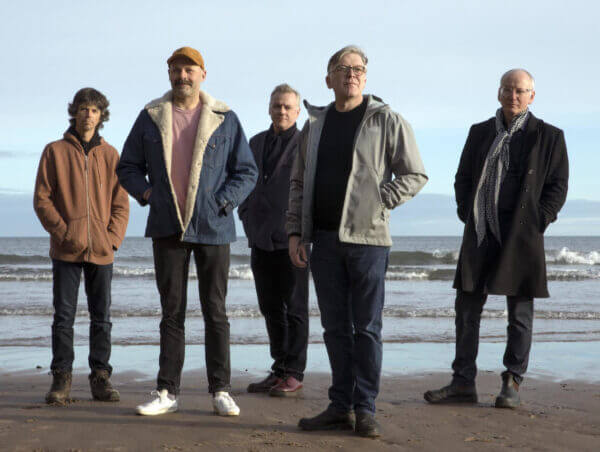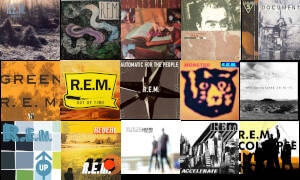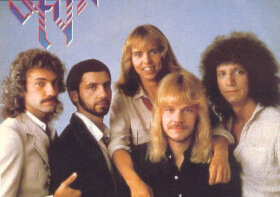The 40 Best U2 Songs

In the wake of U2’s 40-song set Songs of Surrender, Bono and the Edge (where are the other two?) have “reimagined” some of their most memorable songs, rearranging them to a bare minimum and changing some lyrics. The result is mixed, and the selection of songs is questionable.
Are they U2’s best songs? Let’s take a look at what I would put on a 40-song U2 retrospective.
40. “I Fall Down” (October, 1981)
U2 is not known for its piano intros, and that’s what gives “I Fall Down” its unique sound. Melodic but icy, it sets the perfect stage for an album that’s full of emotion and uncertainty.
39. “Stay (Faraway, So Close!)” (Zooropa, 1993)
Zooropa was weird. Really weird. Some parts are just unlistenable, but “Stay” settles into a comforting groove and stays there for over five minutes, punctuated by Bono’s high-pitched chorus.
38. “Heartland” (Rattle and Hum, 1988)
Given that Rattle and Hum was a failed experiment, it’s not surprising to learn that “Heartland” was actually a Joshua Tree reject. If the Joshua Tree had been a double album, it would have made the cut, but instead, it becomes one of the highlights of this uninspiring soundtrack.
37. “Discotheque” (Pop, 1997)
If you had told me 26 years ago that the first single from Pop would be among my Top 40 best U2 songs, I would have thrown the album at you. But “Discotheque,” its driving guitar riff and techno percussion have aged remarkably well as the pendulum swung as far away from The Joshua Tree as possible.
36. “Two Hearts Beat As One” (War, 1983)
Lost in the spotlight of “Sunday Bloody Sunday” and “New Year’s Day” is this passionate anthem in which Bono proclaims, “I don’t know my right from left / Or my right from wrong.”
35. “No Line on the Horizon” (No Line on the Horizon, 2009)
The title track from their underrated album in 2009 starts with a sustained monster guitar chord from the Edge and the rat-a-tat cadence from Larry Mullen, Jr. Add Bono’s screaming vocals and you hear a sound U2 hasn’t achieved since War.
34. “Staring at the Sun” (Pop, 1997)
What? Another song from Pop? Are you mad? The truth is that this more up-tempo remake of “One” doesn’t take itself as seriously as its predecessor on an album where the group is basically making fun of itself.
33. “Twilight” (Boy, 1980)
If U2 were post-punk, “Twilight” is them at their most punk — raw, energetic and dark. Of course, they were young, but it gives you a glimpse at a different band than what eventually rose to the top of the charts.
32. “A Sort of Homecoming” (The Unforgettable Fire, 1984)
The Eno/Lanois era of U2 opens with a complex anthem featuring Larry Mullen Jr.’s impassioned drumming. Its melodies are more difficult to find, but it builds in intensity, creating a perfect sonic landscape for the rest of The Unforgettable Fire.
31. “Gloria” (October, 1981)
Early in their career, U2 were pigeonholed into a pseud0-Christian band because of songs like this that speak more to their heritage than to their religious beliefs. It’s a typical U2 anthem that was played many times at concerts.
30. “Electrical Storm” (The Best of 1990–2000, 2002)
This single from their greatest hits package presses all the buttons and leaves you satisfied. After you’ve heard it, it seems like it can immediately take its place among the other great songs in their catalog.
29. “Running to Stand Still” (The Joshua Tree, 1987)
The fact that this song made the Top 40 and is only the fifth-best song on The Joshua Tree shows the album’s depth. A stunning commentary on drug addiction, “Running to Stand Still” starts softly — just a whisper of a guitar chord, but then it builds slowly, crests and then returns to where it came from.
28. “Love Is Bigger Than Anything in Its Way” (Songs of Experience, 2017)
One thing missing from U2’s last two albums is the rich, textured sounds that make a U2 song instantly recognizable. They finally achieve it on this song, which has an unforgettable instrumental part that makes you wonder if you’ve heard it before. It’s timeless.
27. “Walk On” (All That You Can’t Leave Behind, 2000)
U2 was trying for another “One” with this anthem and missed spectacularly. It’s uplifting and can be interpreted in several different ways — first it was dedicated to Myanmar activist Aung San Suu Kyi and then to Ukraine. And it won a Grammy for Record of the Year.
26. “An Cat Dubh” / “Into the Heart” / “Out of Control” (Boy, 1980)
I’m cheating a little bit: three songs in one entry. But this medley of songs cannot be broken apart; they have to be listened to as a trio. It starts mysteriously, smolders for a bit during the second song and then unleashes itself in a magnificent fury during the final cut.
25. “Hold Me, Thrill Me, Kiss Me, Kill Me” (Batman Forever soundtrack, 1995)
“HMTMKMKM” is a song from their experimental phase that works on all fronts: A screeching guitar accompaniment from the Edge, distorted vocals from Bono and stunning percussion from Mullen. U2 can be threatening when they want to be, and this powerful song proves it.
24. “Sometimes You Can’t Make It on Your Own” (How to Dismantle an Atomic Bomb, 2004)
If there was any doubt that U2 was back to its old sound, the group removed it with this ballad, which applies all of the tricks from the U2 songbook. Bono, though, had discovered his falsetto by then, and it adds a new dimension to that sound.
23. “Luminous Times (Hold On to Love)” (B-side, 1987)
Several B-sides could have made this list; the fact that one almost makes the Top 20 list shows the group’s depth. This could have easily fit on The Joshua Tree, its passion boiling just below the surface.
22. “Original of the Species” (How to Dismantle an Atomic Bomb, 2004)
The penultimate track on HTDAAB starts timidly with a keyboard but quickly moves into familiar territory accented by strings. And by the time the Edge chimes in with his guitar, that change is so welcome you embrace it fully and immerse yourself in the sound.
21. “One Tree Hill,” (The Joshua Tree, 1987)
U2 peaked commercially in 1987, and “One Tree Hill” shows us everything about the U2 sound up to this point: The Edge’s ringing guitar riffs, Bono’s impassioned scream, and Eno and Lanois’ sonic orchestral touch. It’s close to perfect.
20. “Moment of Surrender” (No Line on the Horizon, 2009)
Bono sounds strained on this low-key, atmospheric song, and it’s an ideal juxtaposition. The Edge’s guitar takes a back seat here, and the result is definitely subdued, saved by the sing-song chorus that invokes something pastoral.
19. “Beautiful Day” (All That You Can’t Leave Behind, 2000)
U2 was criticized by some for their experimental phase, but they returned to that old sound in 2000. This anthem announced the old sound to everyone, and it quickly became a classic. Although it’s not as melodic as some of their other hits, the soaring chorus leaves no doubt that it deserves its place in the pantheon of U2 greats.
18. “Who’s Gonna Ride Your Wild Horses” (Achtung Baby, 1991)
I was disappointed — no, angry at U2’s departure in Achtung Baby, but it’s grown on me after 30 years. And the gateway was this song, which bridges the old sound with the new in a respectful way. If Achtung Baby was the sound of U2 chopping down The Joshua Tree, “WGRYWH” is an apology.
17. “Miracle Drug” (How to Dismantle an Atomic Bomb, 2004)
By now you’ve recognized my love for the classic U2, and any time they venture into this territory, it gets an OK from me. They give a nod to me and other fans with 2004’s “Miracle Drug,” a song that checks all the boxes, even though it has one of the worst U2 lyrics of all time.
16. “Sunday Bloody Sunday” (War, 1983)
U2’s signature song hasn’t aged well. It’s overplayed and seems somewhat irrelevant. But it’s “Sunday Bloody Sunday,” for God’s sake. Did you think I was going to leave it off the list?
15. “Zooropa” (Zooropa, 1993)
Yes, I hate Zooropa. No redemption for this album, which is the nadir of their career. The opening track is the best thing on the album, and even it is weird and spacey. But the coda is superb as the full band throws aside the electronics and launches into a wonderful proclamation.
14. “One” (Achtung Baby, 1991)
Songs of Surrender has allowed me to focus more on U2’s lyrics, and it’s made me appreciate U2’s most popular song even more. What seems to be an uplifting platitude (“We’re one! But we’re not the same!”) is actually a bleak admission to the state of a doomed relationship. The SOS version would be in the Top 10 easily.
13. “I Will Follow” (Boy, 1980)
The fact that U2 was putting out music of this caliber on their first album shows how talented they were. The band shows a maturity and swagger that many bands search for their entire career.
12. “I Still Haven’t Found What I’m Looking For” The Joshua Tree 1987
I admit that I liked this song a lot better before U2 turned it into a gospel song for Rattle and Hum. Now that version bleeds into my consciousness, and I forget the feeling of peace and joy I first felt when I heard its simple melody on The Joshua Tree.
11. “40” (War, 1983)
Anyone who ever went to a U2 concert in the 1980s still remembers singing this while filing out of the arena after the lights had come on. One of their more overtly religious tunes, “40” is short and simple, yet packs a powerful statement.
10. “I’ll Go Crazy If I Don’t Go Crazy Tonight” (No Line on the Horizon, 2009)
Many U2 fans hate this song, with its cheesy lyrics and pompous vocals from Bono, but U2 manages to do this while still delivering a memorable melody and using a simple chiming line from Edge’s guitar to introduce the verses.
9. “New Year’s Day” (War, 1983)
The companion to “Sunday Bloody Sunday” has aged better than its companion. Thanks to this song, we can still look to a new year with fear and trepidation, and U2 sets the mood with its angry, bleak picture of the world.
8. “The Unforgettable Fire” (The Unforgettable Fire, 1984)
U2’s title track from my favorite album is Brian Eno at his finest — atmospheric gloominess, mysterious echos and keyboards and strings punctuating the atmosphere like lightning. I don’t tire of this at all.
7. “The Fly” (Achtung Baby, 1991)
“The Fly” showed that I could embrace the new U2. It was the first single from Achtung Baby, and I enjoyed the futuristic sound the band created. When they started parodying themselves, I lost interest, but this is a powerful, energetic track.
6. “Pride (In the Name of Love)” (The Unforgettable Fire, 1984)
“Pride” was the first U2 song I ever heard, and it will always hold a special place among U2 songs. It defined the U2 sound throughout the 80s — emotional, melodic and political.
5. “All I Want Is You” (Rattle and Hum, 1988)
After the disappointment of Rattle and Hum, the final song on the album redeems it somewhat, with its simple chord changes offset by a complex orchestral arrangement by Van Dyke Parks. It seems to go on forever, and that’s a good thing.
4. “Ultraviolet (Light My Way)” (Achtung Baby, 1991)
The jolting change in direction of Achtung Baby is lessened slightly by this emotional anthem, with a ringing cadence by the Edge and Bono at his most passionate, soaring into his newly-found falsetto in a glorious apex.
3. “Where the Streets Have No Name” (The Joshua Tree, 1987)
You knew you were in for a treat when this song began Side 1 of The Joshua Tree. A synthesizer mimicking strings gives way to Edge’s guitar, and Mullen’s frenetic tom-toms set the pace for Bono’s vocals, which are honest and optimistic.
2. “Bad” (The Unforgettable Fire, 1984)
The simplicity of this song, which consists of mostly two chord changes, is what makes it beautiful. It mimics the peace and euphoria a heroin user might feel, and Eno and Lanois give it their treatment to give it an added complexity. The song is six minutes long but has known to go as long as 18 minutes during some concerts. And it’s still not long enough.
1. “With or Without You” (The Joshua Tree, 1987)
There are other songs I like more, but this might be the perfect song in which all four members act as a true ensemble. It’s quintessential U2, a soft beginning, building with Edge’s guitar, and building to a climax as Bono screams and Mullen’s drums pound into your brain. And then it diminishes before slowly building again, only to fade out just when it gets going again. It leaves you wanting more, and so you play it again. Lather, rinse, repeat.


